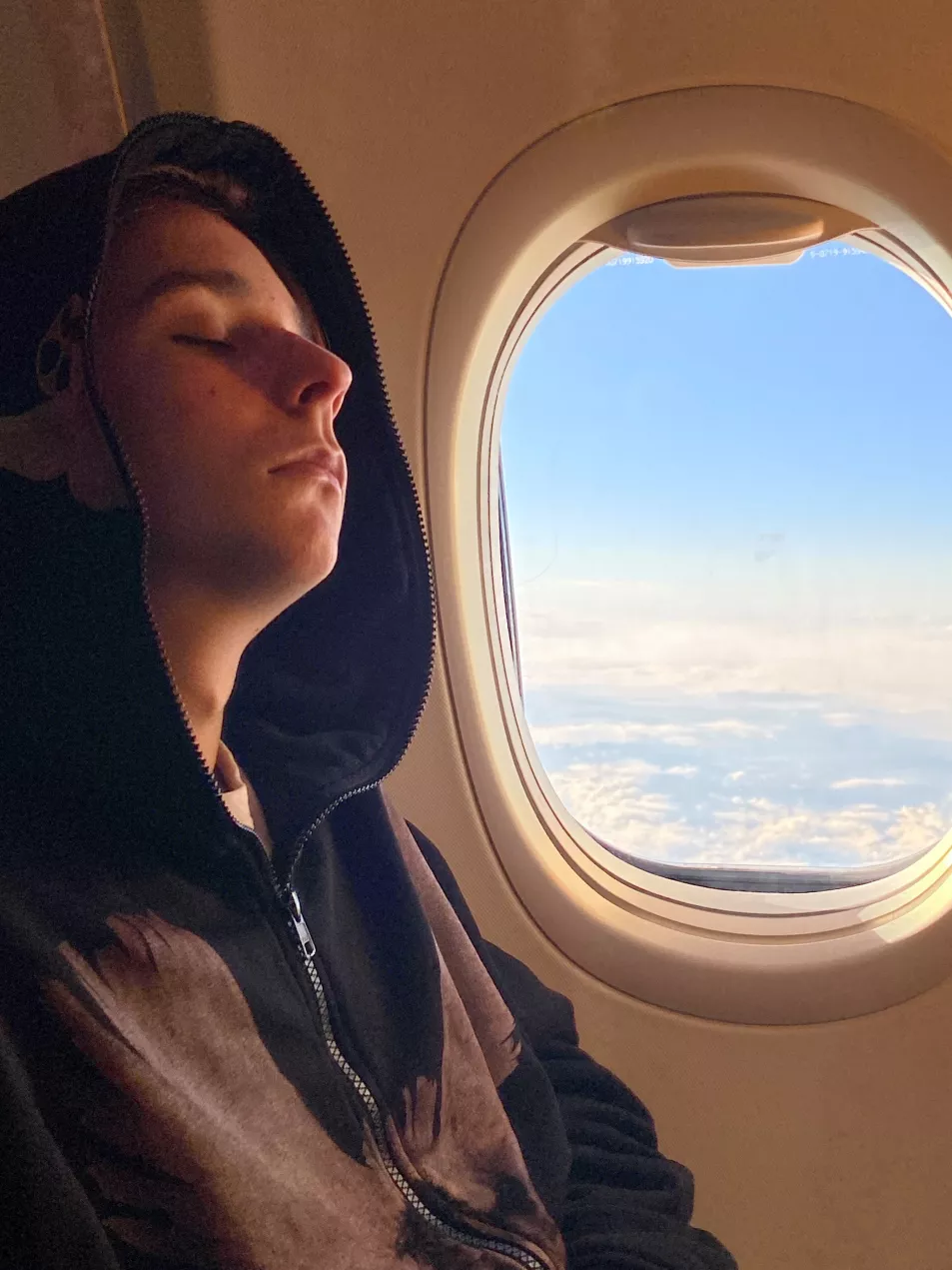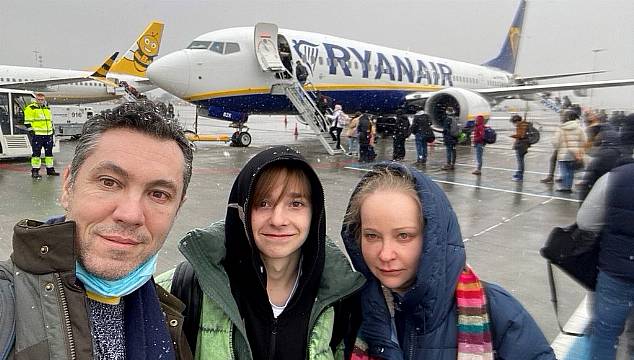A professor at Cambridge University has said that his Ukrainian nephew has been left “in limbo” because of issues with the Ukraine Family Scheme.
Dr Anton Enright, a professor in the pathology department at Cambridge University, is at his home in Cambridge, while his 15-year-old nephew Viktor is stuck in Dublin, Ireland, after escaping from war-torn Ukraine.
Dr Enright, 46, and his partner, Tatyana Lapa, 40, a GP, flew to Poland on March 3rd and said that his sister-in-law Svitlana, 38, “having spent multiple days making a treacherous and difficult journey, handed the traumatised boy to us”.

Svitlana remains in Lviv with her parents, due to the nature of her job which was not revealed for safety reasons.
“(Viktor and his mum) spent the previous three nights going up and down to air raid shelters because they were staying near Lviv which was under missile attack,” Dr Enright told the PA news agency.
“So there was a very tearful exchange on the Ukrainian border on March 3rd.”
Mr Enright heard from his family in Ireland that the EU and Ireland were offering a visa waiver, so he decided to fly to his sister’s family in Dublin to try and apply for a visa there.
He said that arriving in Dublin airport was “probably the best part of the whole experience” as they passed through the airport within five minutes, stamped Viktor’s passport and gave him a piece of paper written in Ukrainian and English that said: “Welcome to Ireland. You are safe, and we are here to help”.

But Dr Enright said making an application under the UK’s Ukraine Family Scheme so that his nephew could be with family involved “incredibly complicated” paperwork.
The Ukraine Family Scheme was set up by the Home Office to allow Ukrainian refugees to travel to the UK to live with their family members who are British nationals or UK settled persons.
“It took us an hour to work out whether or not he was eligible,” Dr Enright said.
“It is a lot of work to have to fill out thee forms. And then we were finally told we needed to book an appointment at the visa application centre in Dublin.
“And when we go to that website, there are no appointments available. When you phone the British embassy in Dublin, they pass you around to other phone numbers,” he said.
Turning up at the visa application centre in Dublin on a whim on Monday, March 7th, Viktor’s photo and fingerprints were taken and all the paperwork needed for the application was packaged and sent to the UK, with Viktor and Dr Enright being told that the application would be processed between 24 and 48 hours.
“It’s now Thursday. We seem to be no closer to getting that visa,” he added.
Miss Lapa is currently in an airport hotel in Dublin with Viktor and Dr Enright and his partner have been “shuttling back and forth between Cambridge and Dublin just to make sure we’re there with him”.
“We’ve had no update, and we are basically living in a life of limbo with a traumatized 15-year-old boy, who just wants to come to Cambridge – a place he’s been many times – to sit and play with his cousins and to be with his family again,” he added.
“This is a boy who’s been through a lot. He’s been in air raid shelters and had to make a difficult trip to Poland, he’s terrified about what’s happening to his family in Ukraine.”

Dr Enright added that he and his partner’s “work life is on hold” because they are both on compassionate leave and feel “deeply let down” by the visa process.
He added that the people of Cambridgeshire and beyond have offered him lots of support, with Coton FC U15s offering to let Viktor play or train with their team because of his love of the game.
A Government spokesperson said: “We are standing shoulder to shoulder with Ukrainians which is why we’ve made it easier for those with Ukrainian passports to come here.
“This is alongside changes to visas to ensure Ukrainians in the UK can stay here.
“We have expanded our Visa Application Capacity to 13,000 a week, deployed additional staff across the EU, with a 24/7 helpline in place to ensure those who need appointments can get them to come here. This allows us to balance security risks while welcoming those in need.”







